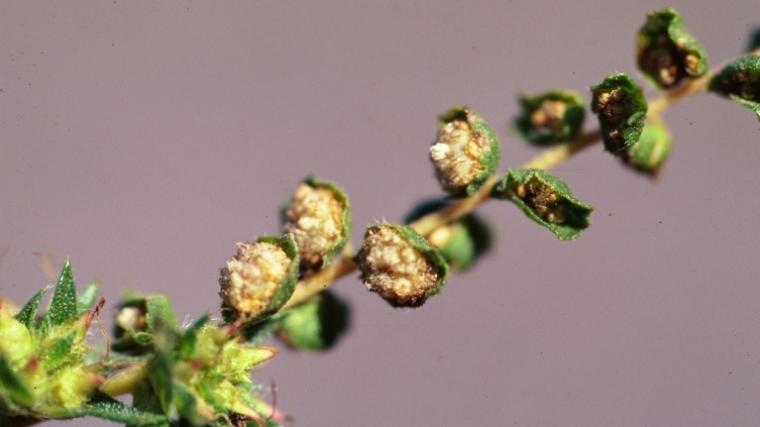
In a nutshell:
Temperature and daylight length strongly influence the range of ragweed, an invasive weed. Ragweed can only reproduce in areas where its seeds can mature before the winter frost. This means that as the climate warms, ragweed will be able to grow in more places.
What is special about this study?
Researchers are working to predict where plants and animals will be found as the climate changes, especially focusing on invasive species. Typically, these types of studies use information on ideal temperature and day length limits for a particular species to predict where that species will expand in a changing climate. This study is unique in that the authors also incorporate information on phenology of ragweed, particularly the amount of time in those ideal conditions ragweed needs in order to reproduce. The authors used data collected by Nature's Notebook participants to make sure their models accurately represented the real world, and found that their predictions aligned with Nature's Notebook data.
What does this mean for YOU?
Ragweed, native to North America, is a serious agricultural weed and produces extremely allergenic pollen. The authors predict that with climatic warming, ragweed will expand its range, which could have detrimental effects on humans in the form of allergies and asthma. The authors also highlight the importance of integrating phenological information into more of these kinds of distribution models so that they can predict the spread of invasive species and the effect of climate change on biodiversity. So if you are tracking plants and animals with Nature’s Notebook, keep your observations coming!
Citation: Chapman, D. S. T. Haynes, S. Beal, F. Essl, and J. M. Bullock. 2014. Phenology predicts the native and invasive range limits of common ragweed.Global Change Biology 20:192-202. DOI 10.1111/geb.12206.